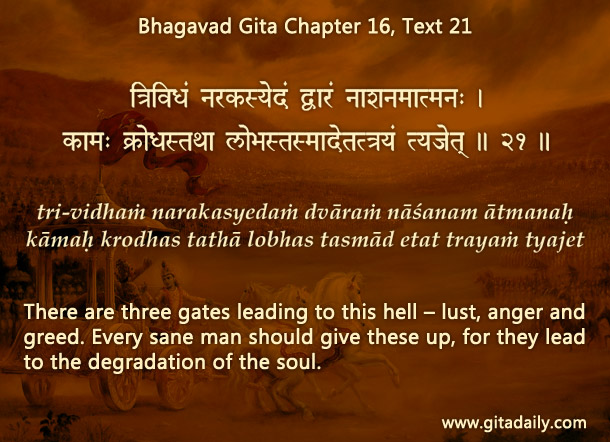Some people ask, “Do you take everything in the Bhagavad-gita literally?”
This is a loaded question. Answering yes provokes rationalists – they label such answerers as naïve literalists and equate them with Christian literalists who believe that the earth is 6,000 years old or Muslim literalists who believe that martyrdom in Jihad will grant them seventy-three virgins for eternity in paradise. Answering no provokes traditionalists – they label such answerers as compromisers who water down scriptural truth for pandering to populism.
To “unload” the question, we can avoid yes-no answers and see the Gita’s content in its literary context. The Gita is a revelation that contains many literal truths. And its divine speaker Krishna has chosen to convey those truths in the literary genre of poetry. Poems are considered high-class when ornamented with literary devices. In keeping with the standards of its genre, the Gita features profusely the literary device of metaphor. When two constitutionally different things are directly equated to highlight a telling similarity, such equation is called metaphor. Metaphorical usage is often non-literal, as in “My boss is the Devil.”
In fact, some metaphors can even be anti-literal. Consider the Gita (16.21) statement that lust, anger and greed destroy the soul. But the soul is indestructible (02.17). Is the Gita contradicting itself? No, the thrust here is not literal contradiction, but literary ornamentation. The (16.21) uses “destroy” metaphorically to stress the spiritual dangerousness of the selfish passions of lust, anger and agreed. Those who pander to these passions soon find their consciousness locked in the realm of matter – they can’t make sense of anything trans-material. Their material captivation has deadened their spiritual sensibilities. Such deadening is conveyed metaphorically by Gita 16.21.
By thus adopting a nuanced approach to Gita study, we can relish both its literal truths and its literary beauty.
To know more about this verse, please click on the image
Explanation of article:
Podcast:


Hare Krishna Prabhuji.
Gita Wisdom, you present in your purport is always excellent, not like Prabhupada which is marvelous, but yours too is of totally different dimension.
PS – Thanks for changing the font. 🙂
Grateful for your appreciation – and eternally grateful to Srila Prabhupada for enriching my life with the Gita’s wisdom.
Ys
ccdas
GITA’s teachings are perennial in this material world to sail through the BHAV-SAGAR